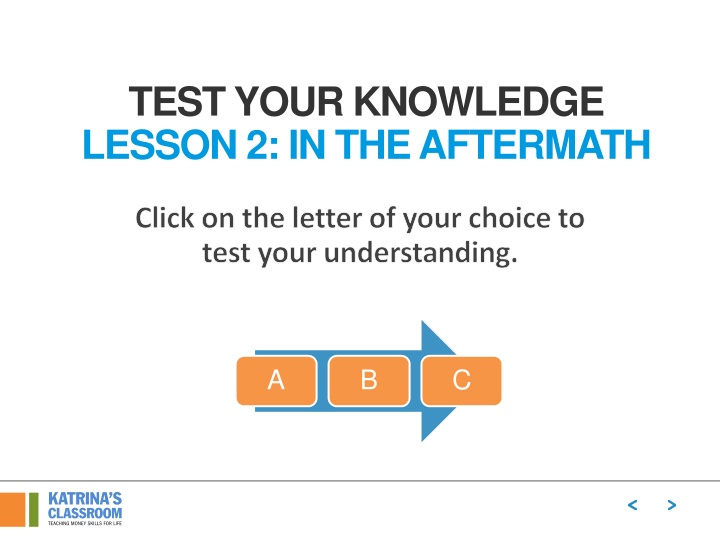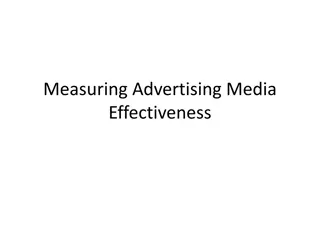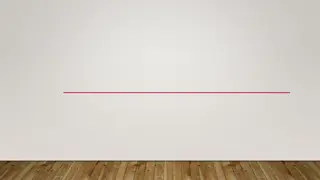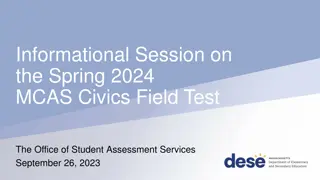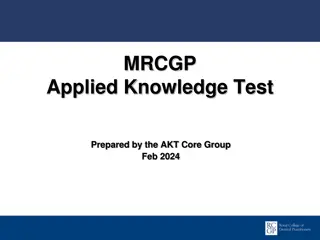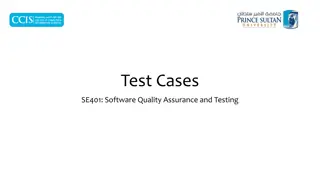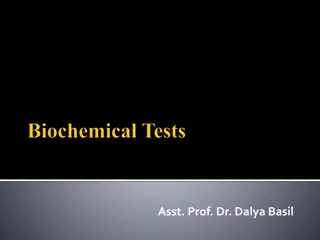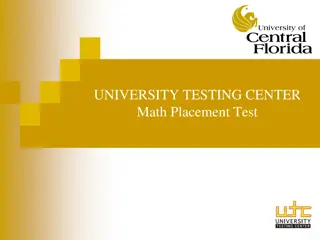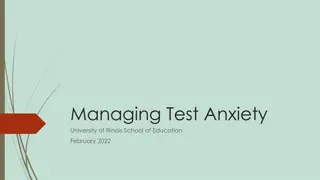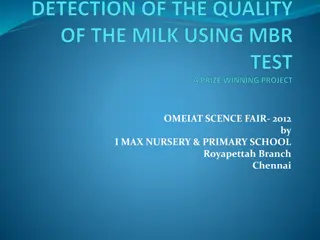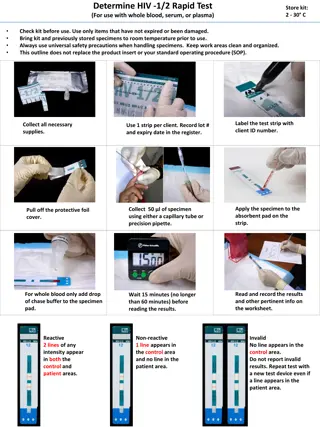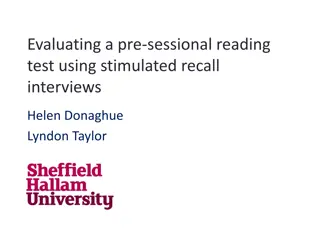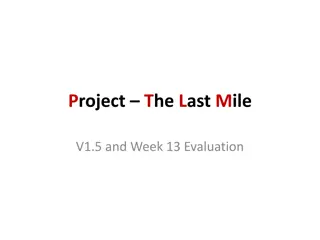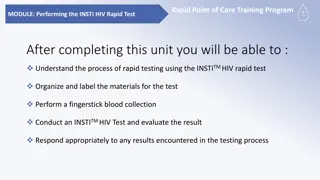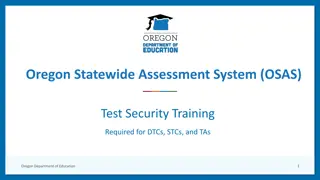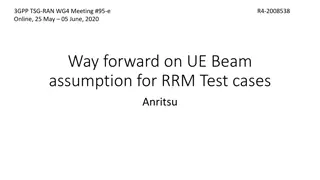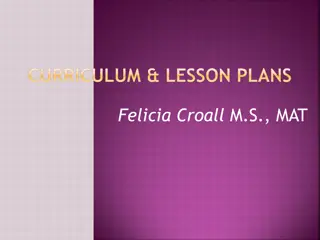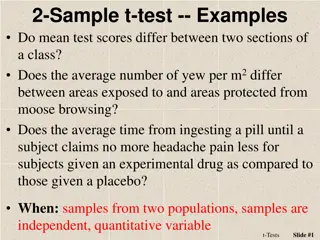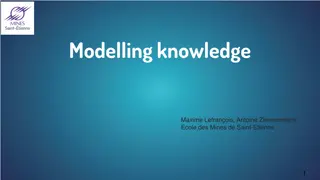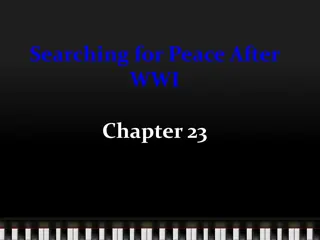Test Your Knowledge: Lesson 2 - In the Aftermath
Test your understanding of deposit accounts and financial institutions by answering multiple-choice questions in Lesson 2 - In the Aftermath. Explore different account types like checking accounts, savings accounts, money market accounts, and certificates of deposit. Learn about the features and characteristics of each type to enhance your financial knowledge.
Download Presentation

Please find below an Image/Link to download the presentation.
The content on the website is provided AS IS for your information and personal use only. It may not be sold, licensed, or shared on other websites without obtaining consent from the author.If you encounter any issues during the download, it is possible that the publisher has removed the file from their server.
You are allowed to download the files provided on this website for personal or commercial use, subject to the condition that they are used lawfully. All files are the property of their respective owners.
The content on the website is provided AS IS for your information and personal use only. It may not be sold, licensed, or shared on other websites without obtaining consent from the author.
E N D
Presentation Transcript
TEST YOUR KNOWLEDGE LESSON 2: IN THE AFTERMATH Click on the letter of your choice to test your understanding. A B C
Lesson 2: In the Aftermath QUESTION 1 A DEPOSIT ACCOUNT THAT OFFERS EASY ACCESS TO YOUR MONEY, OFFERS THE OPTION TO PAY BILLS ONLINE OR BY ELECTRONIC TRANSFER, AND OFFERS THE OPTION TO MAKE PURCHASES WITH AN ATM OR DEBIT CARD IS CALLED: A B C A A checking account B A savings account C A money market account
Lesson 2: In the Aftermath QUESTION 2 A DEPOSIT ACCOUNT THAT PAYS INTEREST ON DEPOSITS, ALLOWS WITHDRAWALS AND TRANSFERS WITH AN ATM CARD, DOES NOT OFFER THE OPTION OF BILL PAYMENT OR PURCHASES, AND MAY HAVE A MINIMUM DEPOSIT REQUIREMENT IS CALLED: A B C A A money market account B A savings account C A certificate of deposit
Lesson 2: In the Aftermath QUESTION 3 A DEPOSIT ACCOUNT THAT REQUIRES DEPOSITED FUNDS TO REMAIN IN THE ACCOUNT FOR A FIXED AMOUNT OF TIME, IMPOSES PENALTY FEES FOR EARLY WITHDRAWAL, AND GENERALLY PAYS HIGHER INTEREST RATES THAN OTHER DEPOSIT ACCOUNTS IS CALLED: A B C A A savings account B A certificate of deposit C A money market account
Lesson 2: In the Aftermath QUESTION 4 A DEPOSIT ACCOUNT THAT PAYS HIGHER INTEREST ON DEPOSITS THAN OTHER ACCOUNTS, GENERALLY HAS A MINIMUM BALANCE REQUIREMENT, AND ALLOWS A VERY LIMITED NUMBER OF TRANSACTIONS EACH MONTH IS CALLED: A B C A A checking account B A money market account C A certificate of deposit
Lesson 2: In the Aftermath QUESTION 5 EXAMPLES OF TRADITIONAL FINANCIAL INSTITUTIONS INCLUDE: A A B C Commercial banks and credit unions B Commercial banks and finance companies C Payday lenders and check- cashing outlets
Lesson 2: In the Aftermath QUESTION 6 WHICH OF THE FOLLOWING ITEMS IS A POTENTIAL NEGATIVE CONSEQUENCE OF PLACING MONEY IN A CERTIFICATE OF DEPOSIT? A A B C Earns lower interest than a savings account B Has a limited number of monthly transactions C Penalties are charged for early withdrawals of funds
Lesson 2: In the Aftermath QUESTION 7 WHEN CHOOSING A FINANCIAL INSTITUTION, YOU SHOULD CONSIDER: A A B C Access to locations, ATMs, and services to meet your financial needs B Fees charged for overdrafts and other penalties C The likelihood of the bank failing
Lesson 2: In the Aftermath QUESTION 8 A CHECK: A Directs your financial institution to transfer money from your account to another person s or business s account. A B B Can be converted to an electronic debit by the recipient by using the digits in the MICR line. C C Both of the above
Lesson 2: In the Aftermath QUESTION 9 AN OVERDRAFT OCCURS: A A When you write more than the allowed number of checks during a single month. B When your savings account balance falls below the minimum amount required by the rules of the account. B C When a check is cashed or a debit is processed against an account that does not have sufficient funds to cover the transaction. C
Lesson 2: In the Aftermath QUESTION 10 DIRECT DEPOSIT: A A B C Is available only to customers with checking accounts. B Can be accomplished by transferring funds from your savings to your checking account using an ATM. C Is a convenience that allows recipients of a direct deposit to have same-day access to deposited funds.
Lesson 2: In the Aftermath THANK YOU FOR PARTICIPATING IN TEST YOUR KNOWLEDGE
